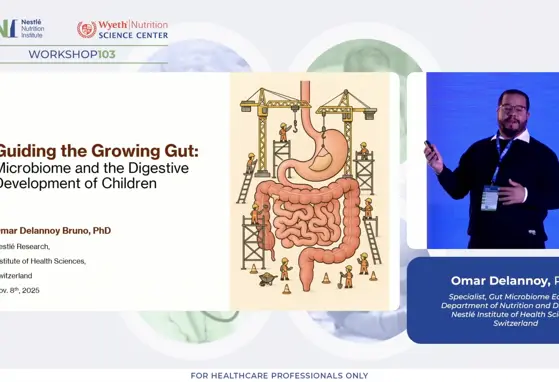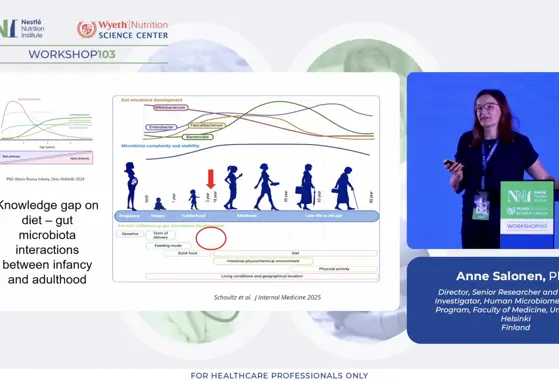Good gut, good night: New research finds link between gut health and sleep patterns
Kiwi and Dutch researchers have reported a direct link between gut health and the circadian rhythm, which could be the key to getting sufficient sleep and protecting the body from pathogens.
In a review article published in the journal Microorganisms, Dr Shanthi Parkar from New Zealand's institute Plant & Food Research, along with fellow researchers from the University of Auckland and University of Amsterdam, detailed the effects of diet on the quality of sleep.
Academic assessment
The review assessed existing evidence of the "interdependency of host circadian systems and gut microbial ecology, and the consequences of this interaction for the host metabolism".
It reported that lifestyle features such as high-fat and high-sugar convenience foods, along with poor sleep caused by long working hours, travel across multiple time zones, and insufficient exposure to daylight, could contribute to a greater incidence of metabolic syndrome, obesity and diabetes.
This occurs due to a disturbed circadian rhythm and altered gut microbiome makeup, with the meal timing and food types both factors in the natural 'body clock' and gut microbiota modulation.
As such, the researchers wrote that "Good sleep and a healthy diet, especially when time-of-day-appropriate, may be essential for maintaining metabolic homeostasis.
"Current evidence indicates an increase in total gut bacterial mass and Firmicutes in response to the food ingested during the waking / eating phase, and an increase in Bacteroidetes, Proteobacteria and Verrucomicrobia during the sleeping / fasting phase.
"There is also evidence of diurnal variation in the microbial metabolites such as butyrate, which in turn affects the host's circadian rhythm and metabolism."
Based on this, they hypothesised that manipulating the microbiome could be a 'promising strategy' to restore circadian rhythm and metabolic homeostasis.
They recommended plant foods, whose undigested components were needed to produce beneficial metabolites such as short-chain fatty acids (SCFAs) and polyphenolic bioactives in the colon to protect against pathogens and reset circadian rhythms.
Digestive disturbance
Parkar told NutraIngredients-Asia: "Our digestive tract, just like every other organ, tissue and cell in our body, has a circadian rhythm. This rhythm is synchronised daily by light — it sends messages to the brain, which then sends messages to the rest of the body to tell it when digestion, assimilation of nutrients and transit of food in the gut should occur.
"All the processes in the body related to digestion, assimilation of nutrients and transit of food show a circadian rhythm. When this rhythm is changed, it will have a huge impact on the way we absorb nutrients, and this has a direct effect on the availability of energy in the body."
She added that gut infections would change and displace the kind of bacteria that should normally be present in the intestine. This would in turn will affect the body clock, as gut metabolites have been shown to influence the circadian rhythm.
"Protecting your gut from pathogens is a key issue here. The bacteria in our bodies get their food from what we eat, so it's important to eat foods rich in plant and dietary fibres, such as broccoli, kiwifruit and cherries."
Targeted timing
In addition to eating the right foods, Parkar emphasised the importance of doing so at the right time. She said recent evidence had shown that the enzymes for digestion and absorption peaked in the daytime, typically around lunchtime.
Therefore, if someone has lunch later in the day (around 4 PM, for instance), he will need to find a way to trigger his body's synthesis of these enzymes, or experience a sub-optimal absorption of nutrients. The latter will result in the presence of metabolites in the body that should not normally be there.
"There are many good fibre-rich foods and they should all be eaten in the daytime, because studies have shown that is when there is an increase in bacteria that require these high-fibre ingredients to generate butyrate, which is very useful for the gut lining," said Parkar.
"You might also have higher glucose levels if you've eaten a big meal at 5 PM or 6 PM, when you should actually have reduced glucose levels in the evening.
"Even if you eat the right food, eating it at the wrong time is not useful in protecting against the harmful effects of late nights and poor sleep patterns."
Furthermore, she said bacteria that increased at night preferred to feed on glycans and other materials from whole cells, which were found in the intestines and came from the human epithelium.
Therefore, it made sense to eat less in the evening because this would save it the work needed for digestion, and help to sustain microbial populations in optimal numbers.
Parkar further said: "Studies have found that a high-fat diet and circadian disruptions impede the body's ability to cope with stress. Such a diet is of no use when you are going to sleep and your body needs to rest.
"It also changes the microbial populations by increasing bacteria that feed on fat, for instance, and this is not beneficial. People are better off avoiding high sugar and fat intake, especially in the evening."
Advancements and advice
Apart from elucidating the link between gut health and the circadian rhythm, the studies examined in the review paper have increased academic understanding of bacterial assessment: while most earlier studies involved taking a single bacterial sample from a human subject at any one time, researchers have found this method ineffective as bacteria have their own circadian rhythms.
"You should not only have the right bacteria, but the right bacteria at the right time," Parkar said.
Elaborating on how to incorporate better eating habits and dietary patterns into a hectic lifestyle, she said it was best to avoid energy-dense meals rich in fat or sugar in the evening.
For those who work late and have no choice but to eat late at night, she recommended low-calorie snacks like celery or carrot sticks, or light meals.
"Lifestyle changes are unavoidable, whether you work long hours, do shift work, or fly across time zones regularly. There's a lot of good literature on how to adapt your diet to such lifestyles healthily.
"There's also what is called time-restricted feeding. If you work night shifts, for instance, have a light snack or meal, but after that, avoid eating too soon in the daytime.
"There should be a gap of 12 to 14 hours between the last meal you have before sleeping and the first meal you have after waking up."
Parkar, S.G.; Kalsbeek, A.; Cheeseman, J.F. Potential Role for the Gut Microbiota in Modulating Host Circadian Rhythms and Metabolic Health. Microorganisms 2019, 7, 41.
Links : https://www.nutraingredients-asia.com/Article/2019/03/20/Good-gut-good-night-New-research-finds-link-between-gut-health-and-sleep-patterns
If you liked this post you may also like

Mindful Microbes: The Interplay Between Environment, Gut Microbiome, Brain, and Behavior

Exploring the Crosstalk: Nutrition, Microbiome, and Cardiometabolic Health

Guiding the Growing Gut: Microbiome and the Digestive Development of Children

Nourishing the Microbiome at Preschool age: Dietary influences from infancy to present